Throughout history, plagues have ravaged human populations, leaving devastation in their wake and forever altering the course of societies. Despite the advancements in medicine and technology, the lessons from these pandemics often seem to fade into collective amnesia.

Let’s explore some of the deadliest plagues in history and the critical lessons they impart, which humanity still struggles to fully embrace.

The Plague of Athens (430 BCE)
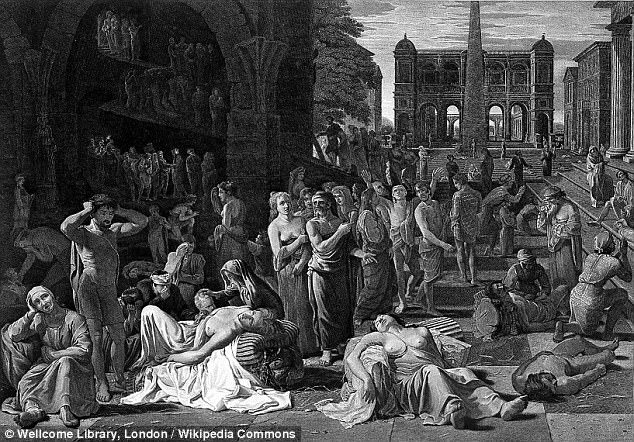
During the Peloponnesian War, the Plague of Athens decimated the population of the city, killing an estimated 25% of its inhabitants. The outbreak, believed to have been caused by typhoid fever, spread rapidly due to overcrowding within the city’s walls, as Athenians sought refuge from Spartan attacks.
Lessons Unlearned:
- Public Health in Urban Areas: Overcrowding in urban settings continues to exacerbate disease outbreaks, as seen in COVID-19’s rapid spread in densely populated cities.
- Preparedness During Crises: Athens’ lack of infrastructure and planning for such an epidemic mirrors modern governments’ struggles to respond effectively to sudden public health emergencies.
The Black Death (1347-1351)
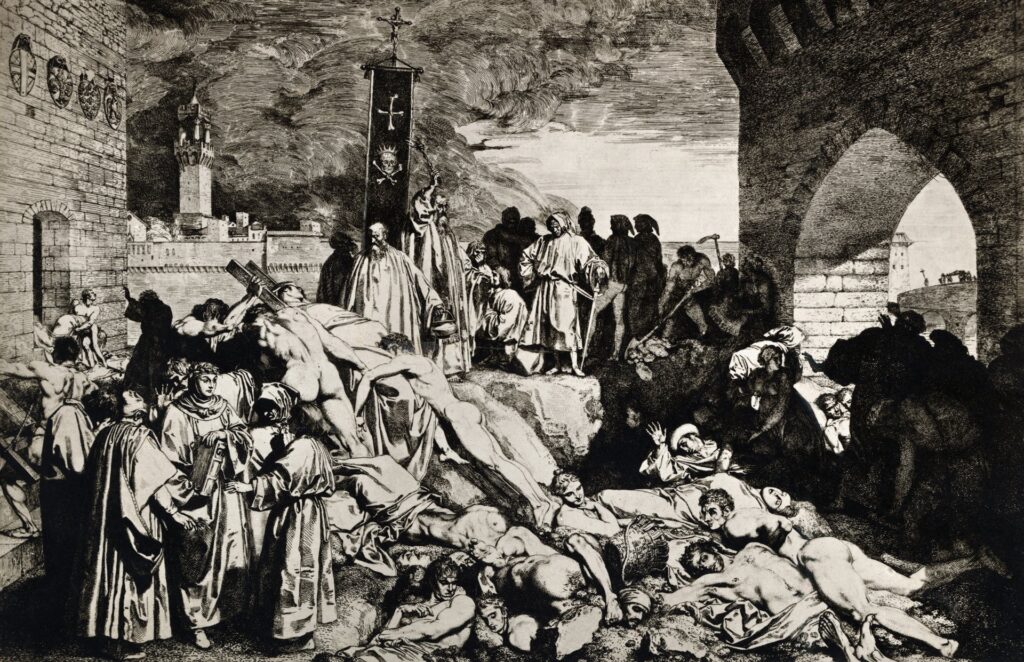
The Black Death, caused by the bacterium Yersinia pestis, is one of history’s most infamous plagues . It wiped out nearly 50 million people in Europe—about 60% of the continent’s population—within just a few years. The plague spread through fleas on rats and was facilitated by poor sanitation and trade routes that connected distant regions.
Lessons Unlearned:
- Sanitation and Hygiene: While sanitation has improved since the medieval period, outbreaks of diseases like cholera in undeserved areas highlight ongoing global disparities in access to clean water and hygiene.
- Globalization and Disease Spread: The rapid movement of goods and people during the Black Death parallels modern issues with air travel spreading diseases like SARS and COVID-19.

The Smallpox Epidemics (16th-18th Centuries)
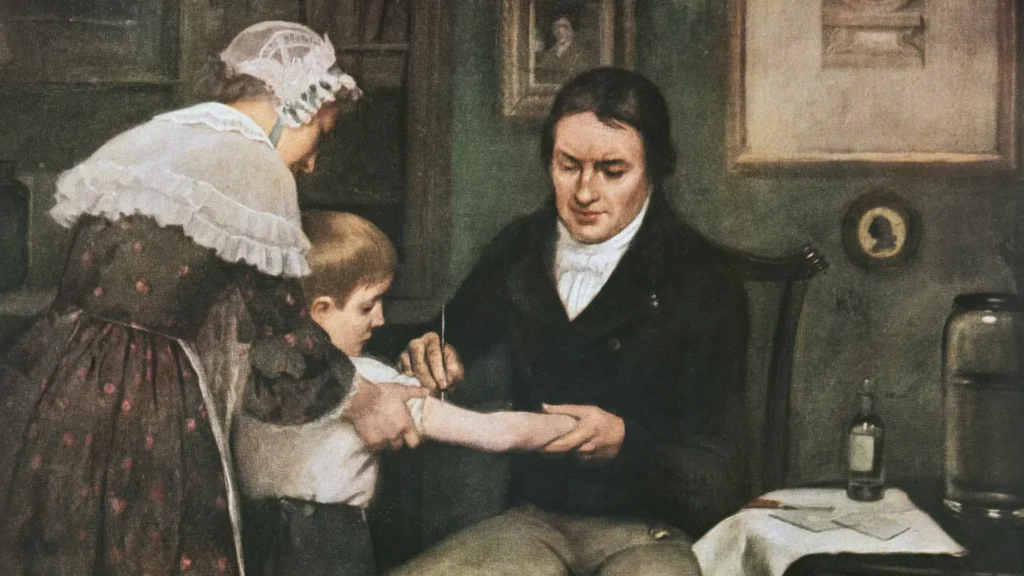
Smallpox devastated indigenous populations in the Americas after European colonization, with mortality rates reaching as high as 90% in some communities. The disease’s introduction by European settlers was unintentional, but its impact was catastrophic, reshaping entire societies.
Lessons Unlearned:
- Vaccination Importance: Although smallpox was eradicated in 1980 due to global vaccination efforts, vaccine hesitancy persists, threatening the progress made against other preventable diseases.
- Ethical Considerations in Public Health: The smallpox outbreaks underscore the importance of protecting vulnerable populations from unintended harm—a lesson often overlooked in modern public health crises.
The Spanish Flu (1918-1919)
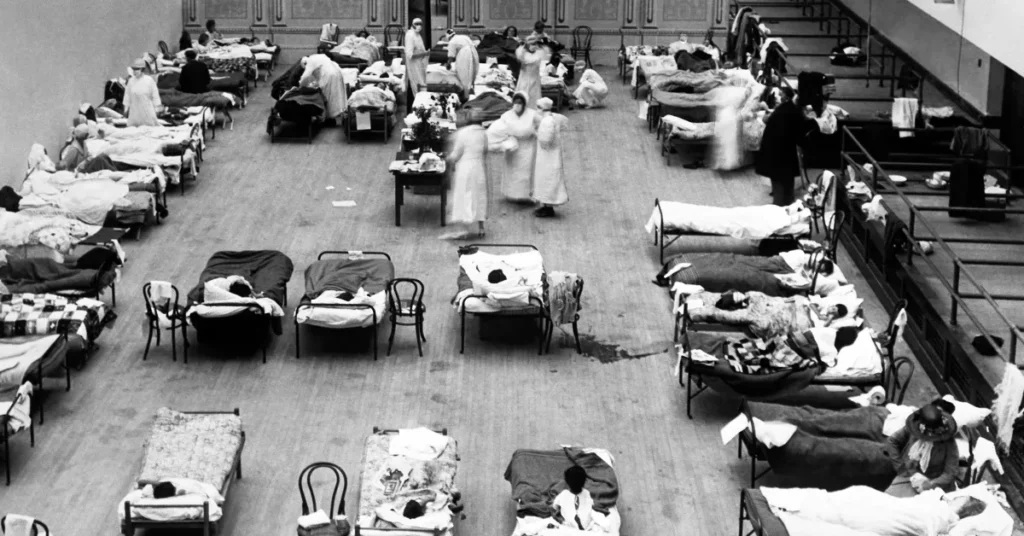
The Spanish Flu infected an estimated 500 million people worldwide, killing around 50 million. Unlike many previous pandemics, it disproportionately affected young, healthy adults. Poor communication, wartime censorship, and the absence of a coordinated global response worsened its toll.
Lessons Unlearned:
- Transparent Communication: Governments’ reluctance to share accurate information during the Spanish Flu echoes similar failures during COVID-19, where misinformation and delayed responses cost lives.
- Global Collaboration: The Spanish Flu highlighted the need for international cooperation in handling pandemics—an issue that remains fraught with geopolitical tensions.
The HIV/AIDS Epidemic (1980s-Present)

HIV/AIDS emerged in the late 20th century and has claimed over 40 million lives. Initially stigmatized as a “gay disease,” the epidemic revealed deep-seated prejudices and systemic failures in public health responses. Advances in antiretroviral therapy have transformed it into a manageable condition, but challenges persist.
Lessons Unlearned:
- Combating Stigma: Stigma around diseases still prevents individuals from seeking timely medical care, as seen in ongoing epidemics like monkeypox.
- Healthcare Access: The disparity in access to HIV treatment mirrors broader issues of inequality in global healthcare systems.
COVID-19 (2019-Present)

COVID-19 is the most recent reminder of humanity’s vulnerability to pandemics. With over 6.9 million confirmed deaths globally as of 2025, it has exposed cracks in healthcare systems, inequities in vaccine distribution, and the consequences of political polarization.
Lessons Unlearned:
- Preparedness for Novel Diseases: Despite warnings from epidemiologists, the world was unprepared for COVID-19, highlighting a lack of investment in pandemic preparedness.
- Misinformation: The proliferation of conspiracy theories and misinformation during COVID-19 has severely hampered public health efforts.
The Common Thread: Ignoring History’s Warnings
What unites these pandemics is the recurring failure to learn from history. From the importance of early intervention to addressing systemic inequities, many of the same issues persist across centuries. Factors such as global interconnections, urbanization, and climate change have only heightened the risks of future pandemics.
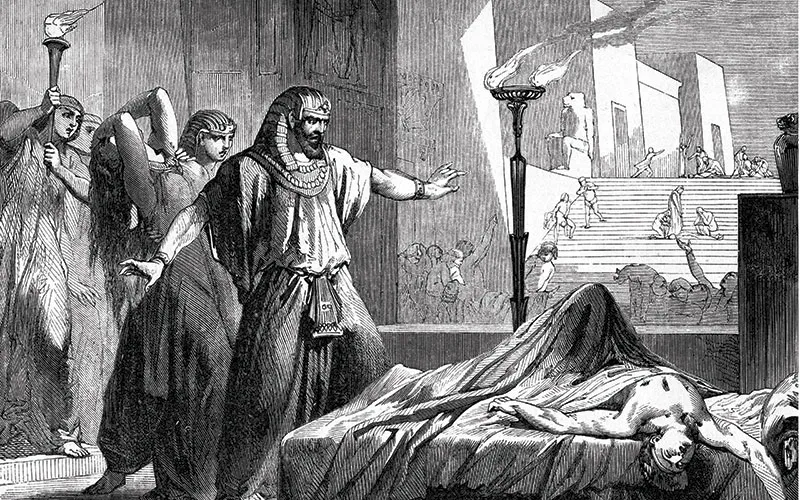
Actionable Lessons for the Future
- Strengthen Public Health Infrastructure: Governments must invest in robust healthcare systems that can handle surges in demand during crises.
- Promote Global Collaboration: Cross-border cooperation is essential for tracking and containing diseases in an interconnected world.
- Combat Misinformation: Educating the public and countering false narratives are critical to maintaining trust in health initiatives.
- Address Inequities: Ensuring equitable access to vaccines, treatments, and healthcare resources can prevent disproportionate impacts on vulnerable populations.
Plagues have shaped human history, and their echoes still resonate today. By acknowledging the lessons of the past, we can better prepare for the challenges of the future. If we fail to act, history will continue to repeat itself—with devastating consequences.